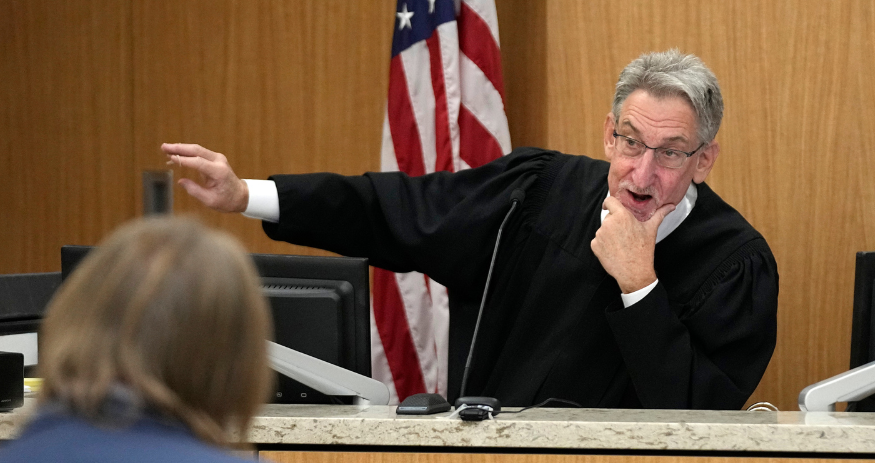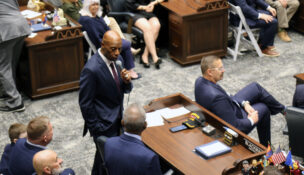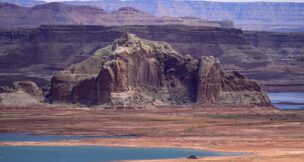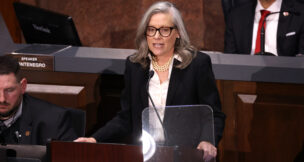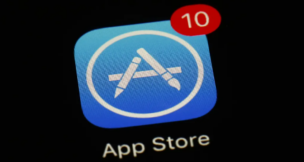Courts prepare for influx of election challenges, legal questions remain
Kiera Riley Arizona Capitol Times//October 18, 2024//
Courts prepare for influx of election challenges, legal questions remain
Kiera Riley Arizona Capitol Times//October 18, 2024//
After litigious 2020 and 2022 elections, another round of legal challenges in 2024 are all but assumed by the judiciary, election attorneys and professionals, with contests set to enter a legal landscape shaped by past cycles and tinged with unanswered questions.
Election contests have offered little in the way of binding case law, but relevant rulings from the Arizona Supreme Court and Arizona Court of Appeals could still prove instructive in 2024. All the while, the courts left requests for clarification on election contests discovery constraints on the table, which stand to resurface in 2024.
Though current state law, past litigation and subsequent decisions give some indications how election contests may play out post-Election Day, attorney Andrew Gould said the impact of the 2020 and 2022 cycles will only truly become clear after sifting through 2024.
“We don’t fully yet know all the lessons from those two cycles until we’re done with this one,” Gould said.
Gould said election contests in the state are marked by quick timeframes and a high burden of proof, making for a difficult victory.
Under state law, any elector of the state can contest a candidate’s election or passage of any ballot initiative or legislative referral on grounds of misconduct, bribery, illegal votes, an erroneous count or a candidate’s ineligibility for office.
Election contests must be filed within five days of the state canvass, and after filing, the parties may inspect ballots to prepare for trial. The court must then schedule a hearing within 10 days, with a maximum five days grace period given good cause. The court must then enter judgment within five days of hearing the case.
“Once the votes are counted, it is extremely difficult in election law to change those results and the standards in our election laws here in Arizona make it very difficult, it’s a very high standard,” Gould said. “I think people’s expectations about what can be achieved in an election challenge post election is inconsistent with what’s available under the statutes that we have now.”
Beyond statute, case law creates a high burden of proof, which continues to weave through more recent election contest rulings.
An opinion from the Arizona Court of Appeals denying then-gubernatorial candidate Kari Lake’s election contest rebutted Lake’s claim that “the superior court erred by requiring proof that the alleged misconduct ‘did in fact affect the result of the election, positing instead that some unquantifiable uncertainty suffices.”
Judge Kent Cattani wrote, “But election results are not rendered uncertain unless votes are affected ‘in sufficient numbers to alter the outcome of the election … this rule requires a competent mathematical basis to conclude that the outcome would plausibly have been different, not simply an untethered assertion of uncertainty.”
Cattani cited Miller v Picacho Elementary School, which required the sufficient numbers standard, as well as Reyes v Cuming, which held elections can be set aside given illegal votes “indisputably changed the outcome of the election,” and Huggins v Superior Court, which rejected a challenge given failure to allege a sufficient number of invalid votes to change the election result.
The Arizona Supreme Court declined to take up the majority of issues addressed by the Court of Appeals and opted only to remand Lake’s signature verification claim, leaving the remainder of the opinion as persuasive authority in upcoming election contests.
Tied to the burden of proof in Lake’s challenge is the issue of discovery in election contests, a key contention in the lawsuit lodged by attorney general candidate Abe Hamadeh.
State law provides litigants with an opportunity to inspect ballots, but a gray area still exists in how far parties can go beyond what’s explicitly provided for in state law.
“The big question mark is the discovery rules. That really hasn’t been clarified as to what materials are required to be given either through public records requests or through litigation subpoenas,” Hamadeh’s attorney Jen Wright said. “The courts have not really said what discovery litigants are entitled to in an election contest.”
In Hamadeh’s election contest, he sought a list of rejected provisional ballots and the “cast vote record” but saw the discovery requests denied by the Superior Court.
The Court of Appeals found the Superior Court did not abuse its discretion in doing so but declined to go into what discovery was allowed under statute, citing a case that found “when the appellate court can resolve an election-related appeal on one ground, it need not resolve other issues.”
A 2020 Arizona Supreme Court decision order similarly denied a challenge by former GOP Chair Kelli Ward to electors for Joe Biden, holding the trial judge did not abuse discretion in denying a request to continue a hearing and permit additional inspection of ballots.
The judge further touched on burden of proof and concluded the challenge failed “to present any evidence of ‘misconduct,’ ‘illegal votes’ or that the Biden electors ‘did not in fact receive the highest number of votes for office,’ let alone establish any degree of fraud or a sufficient error rate that would undermine the certainty of the election results.”
Hamadeh petitioned the Arizona Supreme Court for review in May, though the court has yet to take up the issue, leaving the open question of discovery at play in 2024.
“It’s sitting there waiting for the court to decide whether to accept review or deny review,” Wright said. “We specifically said the court needs to accept review and resolve these things before the election.”
Gould said it’s too early to say how this round of election litigation will shape and be shaped by past contests, but noted a “tremendous” increase in election litigation in the past two cycles.
“The question is, what’s successful, what works?” Gould said. “It will play itself out, but it’s too early in this massive increase of election lawsuits to say, is it going to go? Is it going to result in massive changes in election law statutes? Is it going to peter out because of lack of success?”
He continued, “One thing I know about lawyers is if you can’t win on certain types of cases, sooner or later, you’re going to stop filing them. In my view, we’re not done sorting it out.”
With weeks to go before the election and potential post-election litigation, the Arizona Supreme Court issued an administrative order directing lower courts to prioritize election contests, stressing the importance of meeting deadlines and allowing ample time for appeal and indicating a quiet brace for an influx of litigation to follow Nov. 5.
Chief Justice Ann Timmer further noted the “heightened importance” of deadlines in a presidential year and set a hard Dec. 6 deadline for the Superior Court to enter an appealable judgment in any contest regarding presidential electors, as final determinations in presidential contests are due Dec. 11, six days before the electoral college convenes on Dec. 17.
“In an election contest, judgment must be entered by the trial court so that sufficient time remains for consideration of an appeal, if any, and a potential remand,” Timmer wrote, “Giving priority to adjudicating an election contest may necessitate the delay of other court proceedings.”

